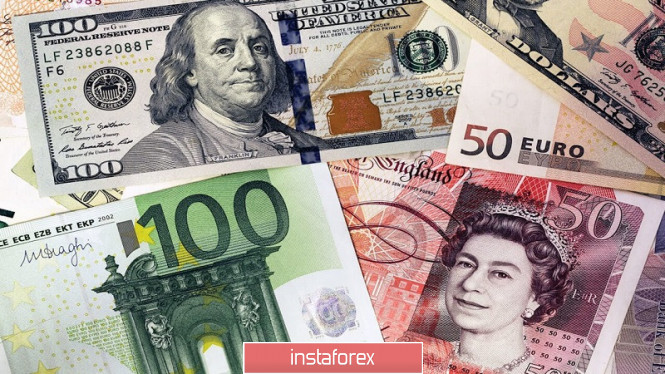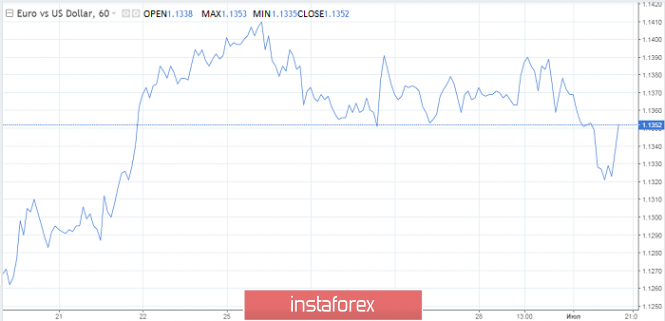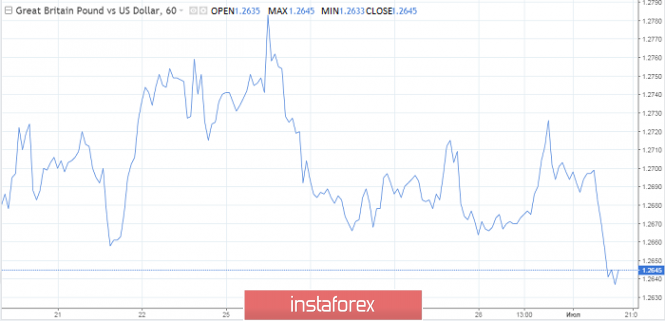
The desire of the United States and China to make concessions and resume trade negotiations was perceived positively by the markets. Donald Trump promised to suspend the process of imposing sanctions. In addition, the US allowed Chinese Huawei to buy its technology, with the exception of strategic products associated with the G5 network. China, in turn, will buy more US agricultural products.
News from the Japanese Osaka contributed to the continuation of the rally in global stock markets, while the safe haven asset decreased in price due to moderate demand for risk-sensitive currencies. However, the good mood and a certain slackness, most likely, will not last long, since for serious fundamental changes it is necessary to stop the trade wars. Uncertainty has not really disappeared anywhere, which means that the rate cut in July will still happen. Trump will certainly continue to criticize the Fed. The US president still needs a scapegoat, and Jerome Powell is best suited for this role.
A thaw in US-China relations will allow Fed officials to focus on statistics and the health of the US economy. Something suggests that easing the policy will be inappropriate in the best half-year terms of the S&P 500 from 1997, increasing consumer spending and for the third month in a row exceeding the PCE monthly growth rates. Inflation in the US really looks modest (1.6%), but it can easily reach the target (2%).
A number of global strategists, including economists at Deutsche Bank, believe that the US regulator will lower the rate this year purely symbolically and then return it to its former state in order to support record economic expansion in the United States. This suggests a temporary weakness of the dollar. Was it really worth getting rid of dollars so actively?
The desire of other world central banks to reduce the rate will benefit the US currency. The dollar's status as a safe haven asset in the medium to long term could have been undermined by the end of trade wars, but this has not yet happened. It is not necessary to count on the rapid ascent of the EUR/USD pair, since the eurozone is still weak. Quotes of the main pair are likely to continue to consolidate around $1.12-1.14.

About the pound
As for the pound, the general news background, including the last summit in Japan, does not set it in motion. It is also worth noting that Brexit has ceased to be a good reason for speculation. On Sunday, Boris Johnson again promised the best for Britain's exit from the EU if he wins the election. Pound traders completely ignored this message. Voting for the leader of the Conservative Party will end on July 22, and from the 23rd in the UK there will be a new prime minister.
Traders should pay attention when voting for British MPs on Wednesday on the expenditure side of the budget with amendments to stop funding if the government chooses a "hard" Brexit without ratification by Parliament. The legality of such a correction of the plan for financial expenses is doubtful, but this is still the only fundamental factor of pressure on the pound.
The overall distribution of large volumes remains the same, in the meantime, a priority to sell remains. We should look at the PMI industry and services with the publication on Monday and Wednesday, respectively.

